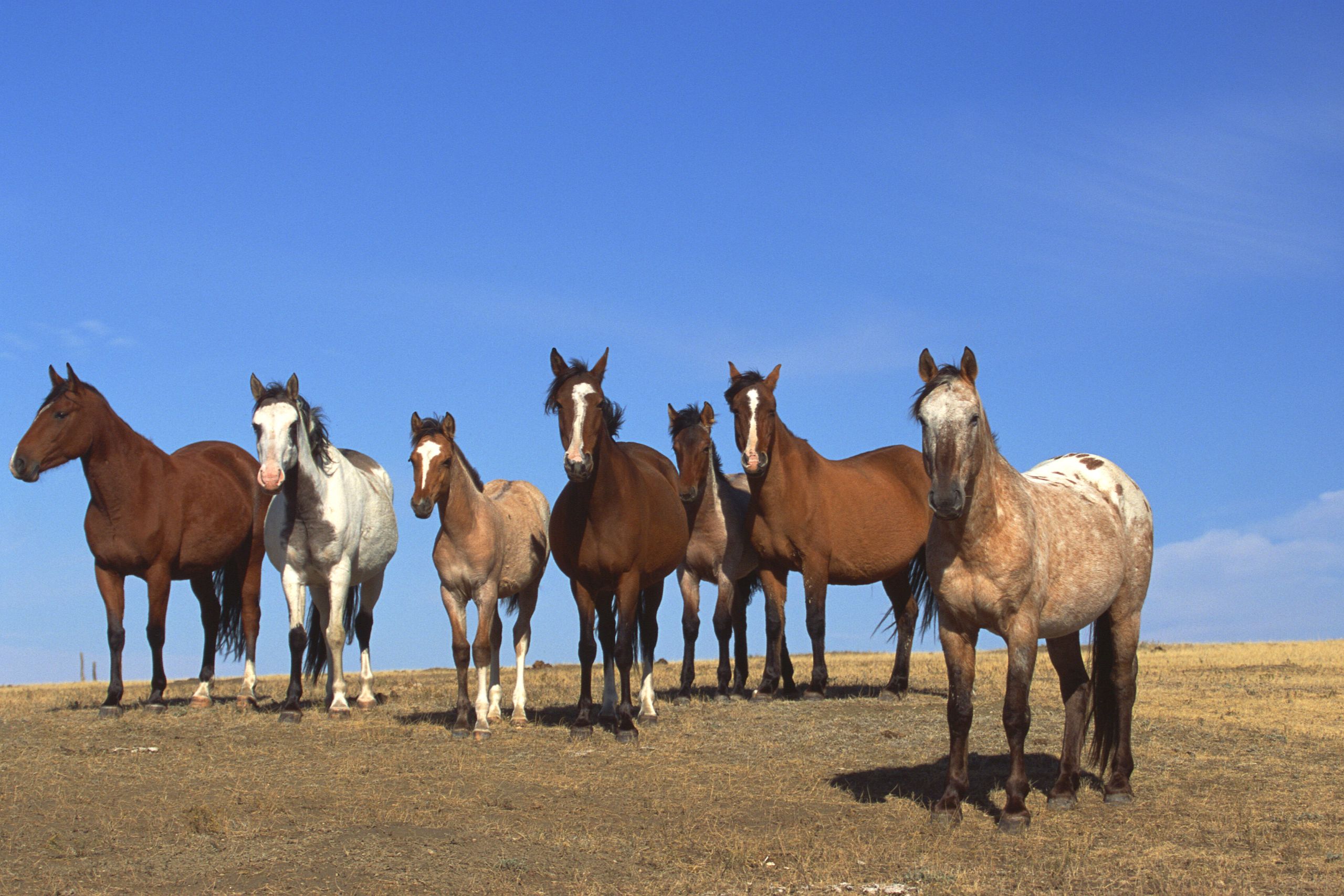The word Mustang is used as a general term to describe feral horses in the USA. Spanish Mustangs are a very special category within this group. Equestrians buy a Spanish Mustang because they are known to be the descendants of horses brought to North America by the first Spanish settlers. Centuries of living wild added unique qualities to their existing characteristics. These tough, beautiful horses have outstanding endurance. Those who buy and sell a Spanish Mustang are part of American equestrian culture, which connects people across the continent.
History and Origins
Spanish Mustangs are sometimes categorised within a larger group known as Spanish Colonial Horses. They are distinguished from the herds of horses of mixed descent, which also roam in large herds across North America and are managed by the Bureau of Land Management. They are also distinguished from other Mustangs of proven Spanish descent with mixed ancestries, such as Corolla Wild Horses and Shackelford (Banker) ponies.
As well as the purer Cerbat Mustangs and Kiger Mustangs. Spanish Mustangs are frequently descendants of horses introduced by missionaries, which were then acquired by tribes, such as the Apaches. These tribes became great admirers of the type, and experts in breeding and trading them. Indeed, the term Mustang can mean both “mixed” and “stray”, giving a good insight into the history of these amazing animals.
Horses that strayed and became feral gained even more toughness and soundness as a result of hardship and facing predators in the wild. Native tribes, Spanish and European ranchers and anyone in need of a sound, reliable mount praised them highly. In 1957, Robert I. Brislawn of Wyoming founded the Spanish Mustang Registry. He had immense practical experience in handling these horses and greatly appreciated their toughness and loyalty.
What is a Spanish Mustang?
The Spanish Mustang is an American breed of horse, descended from horses brought from Spain during the earlier conquest of the Americas.
Use and characteristics of the Spanish Mustang
Since their ancestry dates back several centuries, Spanish Mustangs retain characteristics that are not found in modern Spanish breeds, which have changed over time. Height, for example, can be anything between 13.2 hands high (54 inches/137 cm) and 15 hands (60 inches/152 cm) high. Weight is generally between 650 lb/290 kg and 1,100 pounds/500 kg.
Their faces are distinctively straight or somewhat convex in profile. Spanish Mustangs are compact and powerfully built, with short strong backs and crested necks. Their round, tough feet are found to be some of the best in the world, with the desirable hoof wall structure known as the Mustang Roll. Manes and tails are full, and the tails are low-set. The range of coat colours is considerable and includes bay, black, grey, chestnut, grulla, buckskin, roan and cremello. Perlinos are also known, as are paints and Appaloosa-coloured individuals.
These tough, intelligent horses make great partners for trail riding and endurance. They are sensitive animals that bond well with equally sensitive riders. They are also excellent horses for ranch work and can today be seen participating in both English and Western-style competitions. Many are gaited.

The breed has changed over time. Their height can vary between 13.2 hands high (54 inches/137 cm) and 15 hands (60 inches/152 cm) high. Weight is generally between 650 lb/290 kg and 1,100 pounds/500 kg.
Spanish Mustang in equestrianism
Brislawn’s original registry included just 20 horses. Today, the Spanish Mustang is still a rare breed, but many more people are now aware of its exceptional qualities. They have provided inspiration for literature, such as Marguerite Henry’s book “San Domingo: The Medicine Hat Stallion”. In addition to excelling as work and endurance horses, their close-coupled, compact frame, inherited from their Spanish ancestors, means they make very good dressage horses. Spanish Mustangs are versatile, too, taking part in polo, reining events and barrel competitions.
Can you ride Spanish Mustangs?
In general, yes, Spanish Mustangs are a domesticated breed. They have a docile nature, but do not tolerate violence. If handled properly, they form a close bond with humans.

